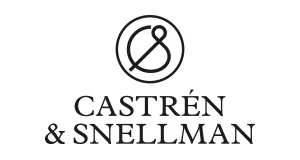- within Intellectual Property and Finance and Banking topic(s)
- with readers working within the Oil & Gas, Property and Securities & Investment industries
On 17January2023, the European Parliament approved a draft of the directive that is meant to prevent tax avoidance and tax evasion through companies that do not fulfil the minimum substance requirements set out in the directive ('ATAD III' or 'Unshell Directive'). The draft directive is next referred to the Council, and it is to enter into force from the beginning of 2024.
The purpose of the Unshell Directive is to impose minimum substance requirements that companies located in the EU must fulfil in order to be entitled to the tax advantages granted through tax treaties and EU directives. The directive aims to prevent tax avoidance and tax evasion practices that directly affect the functioning of the EU's internal market. The regulation is meant to prevent situations where companies that are located in the EU but have no or minimal economic activity (i.e. holding companies or shell companies) can benefit from tax advantages particularly by eroding the tax base of another Member State.
The regulation imposes new reporting obligations to companies. The regulation is expected to have significant effects on cross-border investment structures, and it can create pressure to amend existing group structures. The Unshell Directive is intended to enter into force in the beginning of next year, and companies should already at this stage consider how the draft directive could affect their business.
Determining which companies are in the scope of the regulation (gateway test)
The Unshell Directive would be applied to all companies that are considered tax resident and are eligible to receive a tax residency certificate in a Member State. This means that the directive would not be applied to companies outside of the EU.
The scope of the Unshell Directive is to be limited to companies that are at risk of being found to lack minimal substance and used with the main objective of obtaining a tax advantage. The directive is applied to companies that fulfil the following cumulative three-part gateway test.
- Passive income: More than 65% of the revenues accruing to the company in the preceding two tax years is relevant income. Relevant income, specified in more detail in the directive, means in practice passive income such as interest, royalties, dividends, income from the disposal of shares and income from immovable property.
- Cross-border activities: The company is
engaged in cross-border activity on any of the following
grounds:
- more than 55% of the book value of the company's relevant assets was located outside the Member State of the company in the preceding two tax years;
- more than 55% of the company's relevant income is earned or paid out via cross-border transactions. - Outsourcing administration and significant decision-making: In the preceding two tax years, the company outsourced the administration of day-to-day operations and the decision-making on significant functions to a third party.
At the preparatory stage the proposed regulation has been criticised for extending the scope of the assessment criteria to start retrospectively two years before the entry into force of the regulation. Retrospective regulation is generally problematic in terms of tax certainty and the predictability of taxation.
Actors automatically excluded from the scope of the regulation
Certain actors have been excluded from the scope of the directive. The regulation would not apply to certain listed companies, regulated financial companies and domestic holding companies specified in more detail in the directive. For example, the regulation would not apply to investment funds under the UCITS Directive and alternative investment funds referred to in the AIFM Directive.
Limitations to the scope of application would be assessed on a company-specific basis and not on a group-specific basis. In practice this means that the Unshell Directive may be applicable, for example, to investment structures where holding companies owned directly or indirectly by a regulated financial company are within the scope of the Unshell Directive. Actors in the investment industry have proposed at the preparatory stage of the regulation that such investment structures would be more extensively excluded from the scope of application, but at least for now no such amendments have been made.
Indicators of minimum substance for tax purposes
Companies within the scope of the regulation must declare in their annual tax return, for each tax year, whether they meet the indicators of minimum substance. If a company declares with its tax return that it fulfils all the indicators of minimum substance stated below, it is presumed to have minimum substance for the tax year. If the company does not fulfil the indicators of minimum substance, it is presumed to be a shell for the purposes of the directive.
The indicators of minimum substance:
- Premises in the Member State: The company has own premises in the Member State, premises for its exclusive use or premises shared with entities of the same group.
- Bank account: The company has at least one own and active bank account or e-money account in the Union through which the relevant income is received.
- Company management and employees:
- One or more directors of the company a) are resident for tax purposes in the Member State of the company, or at no greater distance from that Member State insofar as such distance is compatible with the proper performance of their duties or b) are authorised to take decisions in relation to the activities that generate relevant income for the company or in relation to the company's assets.
- The majority of the full-time equivalent employees of the company have their habitual residence as set out in Rome I Regulation in the Member State of the company, or are at no greater distance from that Member States insofar as such distance is compatible with the proper performance of their duties, and such employees are qualified to carry out the activities that generate relevant income for the company.
The indicators of minimum substance proposed in the draft directive are partially very much open to interpretation, and their application will likely be challenging. A particularly ambiguous requirement is the one that states that the majority of the full-time equivalent employees of the company must have their habitual residence as set out in Rome I Regulation in the Member State of the company, or be at no greater distance from that Member States insofar as such distance is compatible with the proper performance of their duties, and that such employees must be qualified to carry out the activities that generate relevant income for the company. It is unclear, for example, whether Finland and Sweden are close enough to each other that employees can properly perform their duties as referred to in the directive from their country of habitual residence. The regulation should also clarify which kinds of attributes or experience are required of the employees in order for them to be qualified to carry out the activities as referred to in the directive.
Exemption for lack of tax motives
Companies that are presumed to be shell companies based on their annual information can provide tax administrations with additional evidence of the business activities they perform to generate income and this way rebut the presumption of being a shell company. The tax administration can at this stage deem that the company is not presumed to be a shell company for the next five years, provided that the factual and legal circumstances concerning the company do not change during that time.
To ensure tax certainty and equal implementation of taxation, the proposed regulation and the grounds for rebutting a presumption of being a shell company should be specified to make it clear which criteria are used as the basis of the assessment. It is likely that many actors in the investment industry will provide tax administrations with additional evidence of their business activities and request that the tax administrations rebut the presumption of being a shell concerning them, due to which it is extremely important that the assessment criteria are fair and predictable.
Tax treatment of shell companies
If a company is deemed to be a shell company as referred to in the directive, it is not entitled to the tax advantages of tax treaties and EU directives. In practice this means that the company is not entitled, for example, to exemption from withholding tax concerning dividends, interests or royalties. If the shareholders of the shell company reside in another Member State, the shell company's passive income will be taxed in accordance with national legislation as if the income were directly generated for or paid to the shareholders of the shell company.
If the company does not have minimum substance for tax purposes, the Member State where the company is resident for tax purposes must deny to issue a certificate of tax residence to the company for use outside the jurisdiction of the Member State.
The directive would not be applied to third countries. The allocation of taxing rights affects only Member States. In practice, however, situations involving third countries are likely to arise, for example where income from a third country flows to the shell or where the shareholders of the shell are in a third country or where the shell owns assets situated in a third country. In these cases, agreements for the avoidance of double taxation between a Member State and a third country should be complied with as regards allocation of taxing rights. In the absence of such an agreement between the countries, the Member State involved should apply its national law.
Sanctions for violating the regulation
The Member States must lay down administrative sanctions for companies if they do not comply with the reporting obligations of the Unshell Directive. The directive would set the lower limits for the amount of sanctions in different situations, and adhering to the limits, the Member States must lay down administrative sanctions for companies for violations. As the directive would allow the Member States to decide the amount of administrative sanctions, it is likely that sanctions in different Member States will significantly deviate from each other.
Effects of the Unshell Directive in practice
The planned regulation would have a significant effect at least on the international investment structures of actors in the investment industry. In particular in private equity, it is common to use holding companies to enable smooth financing of investment objects for institutional investors as well as adequate management of investment objects, among other things. In practice, holding companies are used in investment structures, for example, in managing securities and arranging the order of priority for financing. Such holding companies used in investment structures may be relatively passive for long periods of time due to the nature of the investment objects. Holding companies may become more active for example when the financing structure of the investment objects is changed or when the investment objects are sold or new objects are acquired. The proposed regulation may pose challenges in the investment structures of such operators, and as described above, it is possible that some companies in the investment structure will in future be considered shell companies that are refused some tax advantages. It is also possible that the regulation leads to premature exits in cases where private equity undertakings decide to change their investment structures as a result of the Unshell Directive.
With the directive, tax administrations in the Member States will receive more information on the operations of companies due to the reporting obligations included in the directive. The result may be that the Member States conduct more international tax audits in future.
It is probable that the Unshell Directive will change the nature of holding companies and that in the future much more business, personnel and other resources will be centralised to holding companies. Some companies may concentrate their entire business to low tax countries as a result of the regulation. In the long term, the directive could also have more far-reaching effects, and holding companies and holding company structures like the current ones may in practice disappear from the market in the future. The Unshell Directive may have negative impacts on the competitiveness of the European Union in the global market.
Next phases in the regulation process
The Unshell Directive is next referred to the Council for adoption. The Council does not have to adopt the directive in the form adopted by the Parliament, but it can still amend the directive. After the Council has adopted the directive, the Member States can start implementing it nationally. Pursuant to the draft directive, the Member States should issue national regulation implementing the directive by 30 June 2023, and the directive is intended to be applied as of 1 January 2024. The national laws should thus be drafted within a very short timetable.
The content of this article is intended to provide a general guide to the subject matter. Specialist advice should be sought about your specific circumstances.
[View Source]


